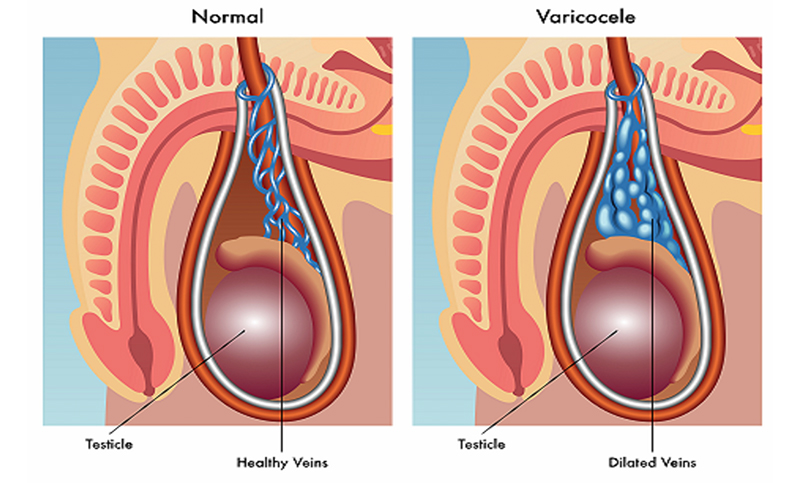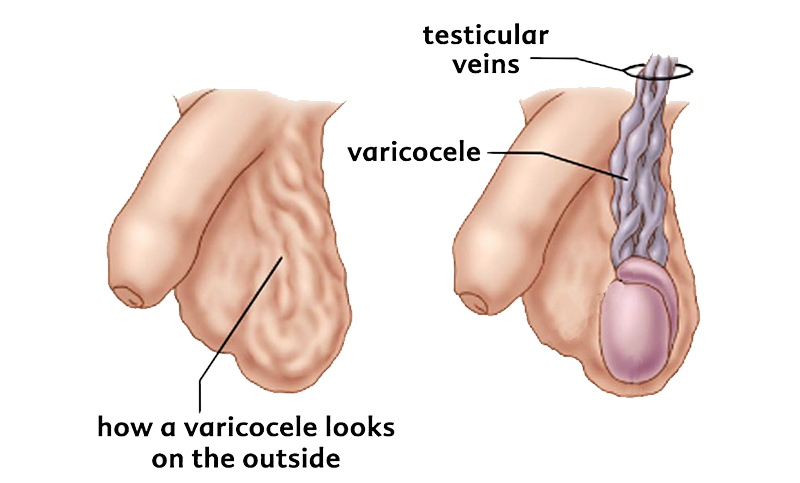What Are Varicoceles?
What Are Varicoceles?

Varicoceles are enlarged veins located within the scrotum. They are quite common and can cause issues with fertility, so it’s important to have them treated.
Regularly checking your testicles for any abnormalities is very important for early detection of testicular cancer. But another irregularity you may want to be wary of is varicoceles.
A varicocele is an enlarged vein within the scrotum, similar to varicose veins that are commonly seen in the legs. These may look and feel like you have worms in your scrotum. Most of the time they arise during periods of rapid growth, such as during puberty, and grow over time. They are quite common, affecting roughly 10-20 percent of men of puberty age and older, and are most prevalent in men aged between 15 and 25.
Although many cases are easily treated and do not cause some symptoms, varicoceles may cause infertility due to decreased sperm production and quality. They may also cause testicles to shrink.
Why Do Varicoceles Appear?
The testicles are held in place by a spermatic cord, which contains veins and arteries that supply the glands with blood. When the mechanism that sends blood from the testicles to back to the heart stops working like they should, blood can pool, causing the veins to enlarge over time. The exact reason this occurs is not currently known. Neither are any risk factors that could contribute to occurrence.
Symptoms of Varicoceles
Sometimes a varicocele may present very mild symptoms or none at all. However, they may cause:
• Visibly enlarged veins in the scrotum
• Discomfort in the scrotum and testicles (ranging from dull to sharp). This may become worse during physical exertion, particularly over long periods of time or over the course of the day.
• Swelling in the scrotum
• A lump on the testicles
• Decreased fertility
It should be noted that varicoceles are more commonly found on the left side or the scrotum. They can occur on the right side, however, this is rare. They can also occur on both sides, but this is very rare.

Diagnosis and Treatment of Varicoceles
Varicoceles can usually be diagnosed with a physical examination, typically while you are standing up (the veins often can’t be detected when lying down).
If symptoms are present, but a physical exam is inconclusive, a scrotal ultrasound will be required. This will give your doctor a more detailed visual of the scrotum and can rule out other possible causes for the symptoms, such as a tumour.
Treatment is not always required for varicoceles, particularly if symptoms are mild. But if they are causing pain, testicular atrophy, or infertility (due to decreased sperm production), treatment is recommended – especially if you are trying to have children. Generally, the bigger they are, the more severe the symptoms. Smaller, less visible varicoceles don’t pose as much of an issue.
Varicocelectomy – This is a minimally invasive procedure where a urologist accesses the scrotum via the abdomen or groin to clamp or tie off the abnormal veins. Blood flow is diverted away from the abnormal veins to the healthy ones.
Varicocele embolisation – This is a less invasive procedure where a urologist places a catheter into either the groin or neck to access the abnormal veins in the scrotum. A coil or solution is placed to block blood flow and repair the varicocele.
Treating Varicoceles With Urology Specialist
While he is primarily a urological cancer surgeon, Dr Mohan Arianayagam also treats more general urological conditions, such as varicoceles.
If you have any further questions about any urological issues or would like to book an appointment, please don’t hesitate to give us a call.

Protect Your Kidneys: Simple Habits for Better Health
Keeping your kidneys in shape is vital for reducing the risk of chronic disease. Check out some of our top…

Boost Your Urological Health with the Help of Technology
Check out some of the different technological tools you can adopt to care for your urological health. While we all…






